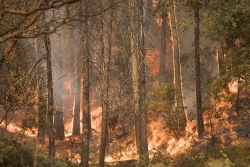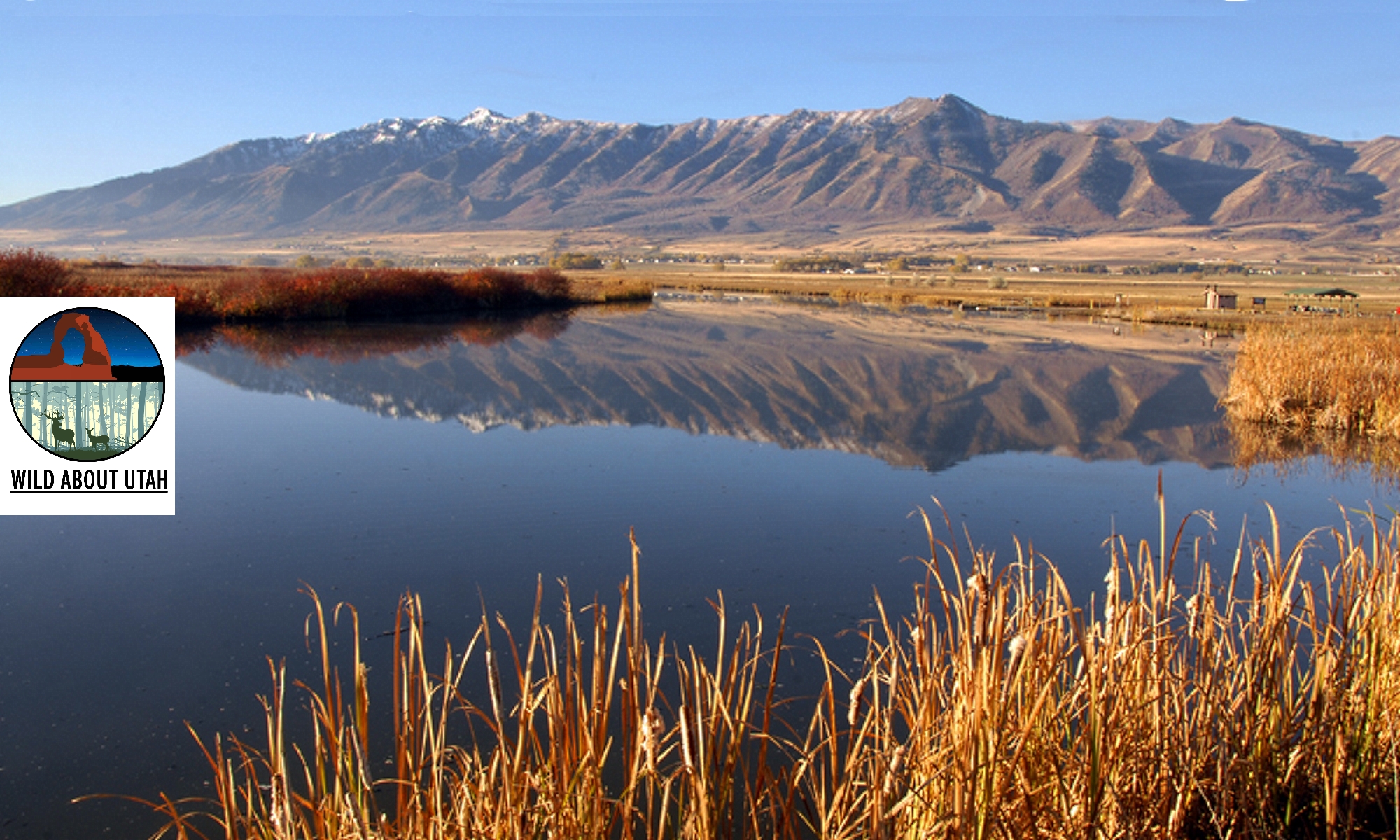
Courtesy USDA Forest Service: Kari Greer, Photographer
About a year ago, a mass die-off of song birds was witnessed over parts of the southwest tentatively attributed to the historic wildfires across California, Oregon and Washington, which
may have forced birds to rush their migration. But scientists do not know for sure – in part because nobody knows precisely how wildfire smoke affects birds. With increasing changes to
climate and rising temperatures, we do not have enough time to collect the data – things are changing faster than we can keep up with.
Enter eBird, a popular app for logging bird sightings. This platform, and the citizen birdwatchers who populate them, have become a critical tool for scientists trying to unravel the mysteries at the intersection of birds, wildfires and climate change. Researchers are increasingly relying on data collected by citizen scientists and birdwatchers to better understand the effects of climate change, including intensifying wildfire. The eBird app was created by the Cornell Lab of Ornithology alongside the National Audubon society, to crowdsource data on the locations and numbers of bird populations globally.
A leading theory behind the south-west die-off is that widespread smoke pollution may have forced birds to start migration sooner than expected. Most of the birds seen dying were migratory. Migration had just started and they were trying to flee the smoke-filled areas and may have starved to death without an opportunity to add extra nutrients for their epic flights. Beyond the effects of smoke on migration patterns, the rise of megafires is also drawing unprecedented attention to the effects smoke may have on a bird’s delicate breathing. Birds and their lungs are certainly affected by smoke. Most of us have heard the phrase “canary in a coalmine”, which comes from the fact that birds are particularly sensitive to toxins in the air. The sensitivity could have something to do with birds’ unique respiratory system. While humans and other mammals use their diaphragm to inhale oxygen and exhale carbon dioxide, birds possess a far more
efficient system, essentially inhaling and exhaling at the same time. This allows them to get enough oxygen to fuel near-constant activity and to breathe at much higher altitudes than
mammals.
To do this, birds have tube-like structures called parabronchi, similar to human alveoli in the lungs, which are covered with sacs and capillaries for gas exchange. And as in humans, smoke damage can burst those bubbles, creating less surface area for gas exchange making it more difficult to breathe.
We can all help by joining eBird and reducing our heat trapping emissions. Go to our Bridgerland Audubon website for more information.
Jack Greene for Bridgerland Audubon Society and I’m wild about Utah, but not its smoke!
Credits:
Nest Picture: Courtesy US FWS, Steve Maslowski, Photographer
Audio: Courtesy and Copyright Kevin Colver, https://wildstore.wildsanctuary.com/collections/special-collections/kevin-colver
Text: Jack Greene, Bridgerland Audubon, https://bridgerlandaudubon.org/
Additional Reading: Lyle W Bingham, Webmaster, and Jack Greene, Author, Bridgerland Audubon, https://bridgerlandaudubon.org/
Additional Reading:
Jack Greene’s Postings on Wild About Utah, https://wildaboututah.org/author/jack/
eBird, All About Birds, Cornell Lab of Ornithology, Cornell University, https://ebird.org/home
Hellstern, Ron, Wildfires, Wild About Utah, Oct 8, 2018, https://wildaboututah.org/wildfires/
Boling, Josh, Fire, Wild About Utah, Aug 13, 2018, https://wildaboututah.org/fire/
Strand, Holly, Investigating the Causes of Wildfires, Wild About Utah, Aug 15, 2013, https://wildaboututah.org/investigating-the-causes-of-wildfires/
Mack, Eric, California Wildfire Smoke Could Explain Thousands Of Dead Birds In The Southwest, Forbes, https://wildaboututah.org/investigating-the-causes-of-wildfires/
